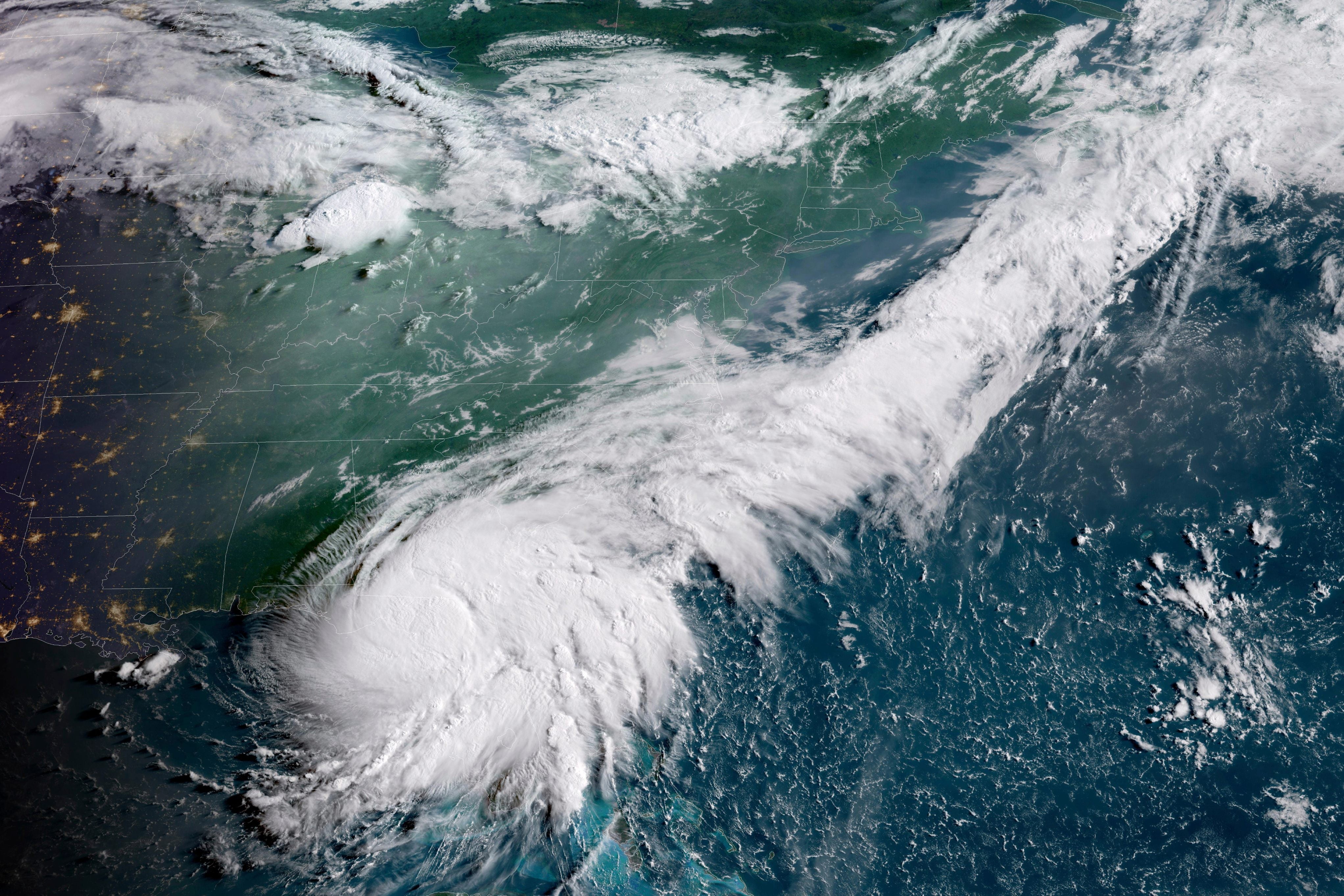
This story is part of the WHYY News Climate Desk, bringing you news and solutions for our changing region.
From the Poconos to the Jersey Shore to the mouth of the Delaware Bay, what do you want to know about climate change? What would you like us to cover? Get in touch.
Tropical Storm Debby, which remains in the Southeastern U.S., could supercharge a cold front and help bring heavy rain and flooding to the Philadelphia region Tuesday afternoon into Wednesday morning, forecasters predict.
“[When] a typical cold front comes through, showers or thunderstorms will occur,” said Mike Lee, meteorologist at the National Weather Service in Mount Holly, New Jersey. “Now you add the tropical moisture in there, suddenly those showers or thunderstorms have a lot more moisture to work with.”
Debby made landfall in Florida early Monday, bringing catastrophic flooding and contributing to four deaths. It’s expected to dump historic amounts of rain on parts of the Southeastern U.S., but its path later this week is still uncertain.
While the supercharged cold front will affect the Philly region, Debby is forecast to move slowly over the Southeast.
The storm could weaken and travel up through the Mid-Atlantic on Friday or Saturday, Lee said, potentially bringing a second bout of precipitation. Impacts such as heavy rain, overflowing rivers or coastal flooding could affect South Jersey, southeastern Pennsylvania or Delaware — but the timing, precise location and scale of these impacts depends on the storm’s trajectory.
“Is it going to be over the ocean? That’s a question,” said Gregory Jenkins, a professor of meteorology and atmospheric science at Penn State University. “But we know it’s got a lot of moisture to work with. And … when that tropical moisture gets up north, it’s gonna rain.”
Residents of the Philadelphia region should stay up to date with National Weather Service forecasts throughout the week, Jenkins said.
The flood watch issued for Tuesday afternoon into Wednesday morning covers central and North Jersey, southeastern Pennsylvania and northern Delaware. Flood risk is greatest in the Philly metro area, Lee said.
If Debby passes through the Mid-Atlantic later this week, the two successive heavy rain events could be problematic, Jenkins said — because the first might saturate the ground and leave little room for additional rain to soak in.
“It could be a double whammy,” he said.
Human-caused climate change makes hurricanes more intense, since warmer ocean water provides fuel in the form of evaporating moisture. Rainfall during hurricanes is becoming heavier.
This spring, federal officials issued a record forecast for the Atlantic hurricane season, which stretches from June 1 to Nov. 30. They predicted 17–25 named storms would form in the Atlantic Ocean, including eight to 13 hurricanes.

إرسال تعليق